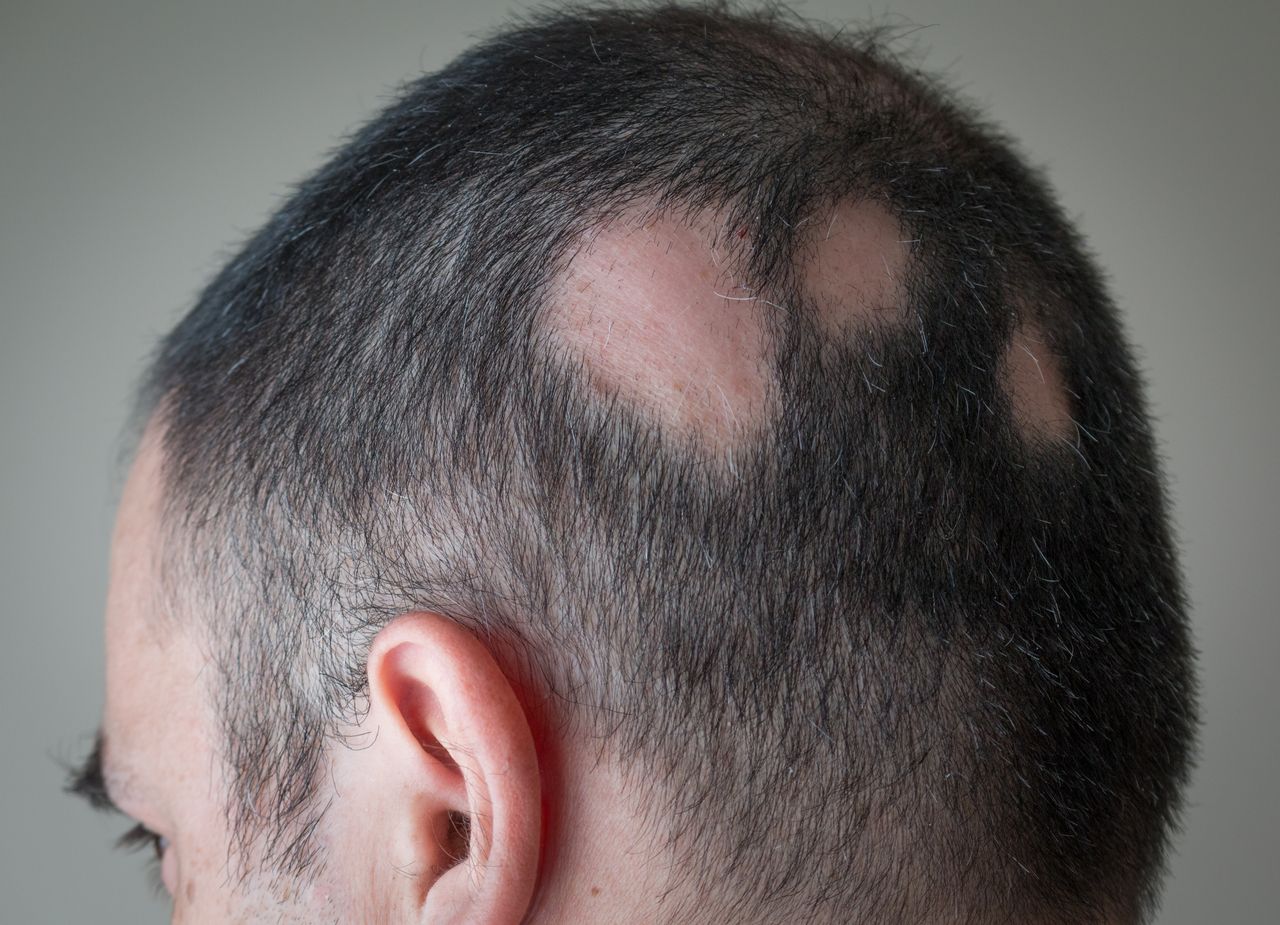Written by Dr. Ringpfeil

Alopecia areata is a condition characterized by round patches of hair loss caused by the immune system mistakenly attacking hair follicles. While the exact cause is unknown, it is believed that genetics and triggering factors contribute to the development of this condition.
Alopecia areata often starts in childhood and has a higher risk if a close family member is affected. Hair loss typically occurs in small, round patches, leaving bald areas on the scalp. In rare cases, it can lead to complete loss of scalp hair (alopecia totalis) or hair loss on the entire body (alopecia universalis). Occasionally, a scalp biopsy or blood tests may be performed to confirm the diagnosis or rule out other autoimmune conditions.
In most cases, hair regrowth happens spontaneously, but it may take several months. However, when hair loss occurs on the scalp and cannot be easily concealed, the psychological impact can be significant. Temporary solutions such as wigs may be necessary in such cases.
Alopecia areata is challenging to treat, and few treatments have been extensively studied. Most treatments focus on promoting faster hair regrowth rather than addressing the underlying cause. Common therapies include topical corticosteroids, steroid injections under the skin, and narrowband UVB light therapy. Topical medications can be applied to the affected areas to stimulate hair growth. In some cases, systemic immunosuppressive treatments may be used. Alternative treatments like acupuncture and Chinese herbs are attempted by some individuals, although there is no known cure for alopecia areata.
Hair loss due to alopecia areata can be emotionally distressing, and psychological support may be necessary. Dealing with relapses during or after successful treatment can be particularly challenging. Children affected by alopecia areata may feel uncomfortable in social settings, making support groups or connecting with other individuals with the condition beneficial.
When emotional stress is identified as a trigger, efforts should be made to manage or avoid stressors. Techniques like biofeedback training, meditation, or yoga may be helpful. Additionally, maintaining a balanced diet and practicing gentle hair care can contribute to overall hair health and minimize the appearance of hair loss. This includes allowing hair to air-dry naturally, avoiding tight hairstyles, and refraining from compulsive hair twisting, rubbing, or pulling.
Patients ask Dr. Ringpfeil answers
Please feel free to use this form to ask our dermatologists questions about this treatment.